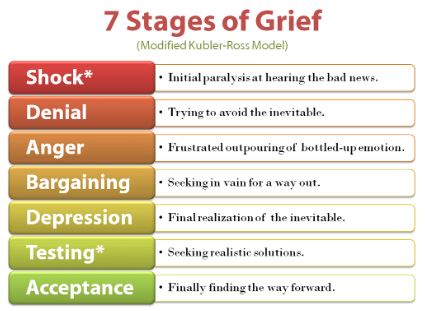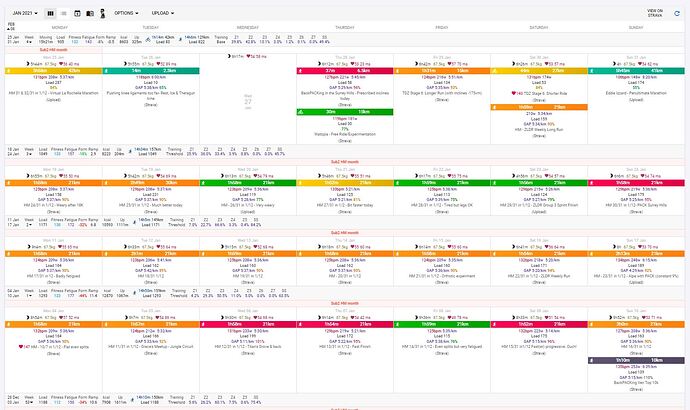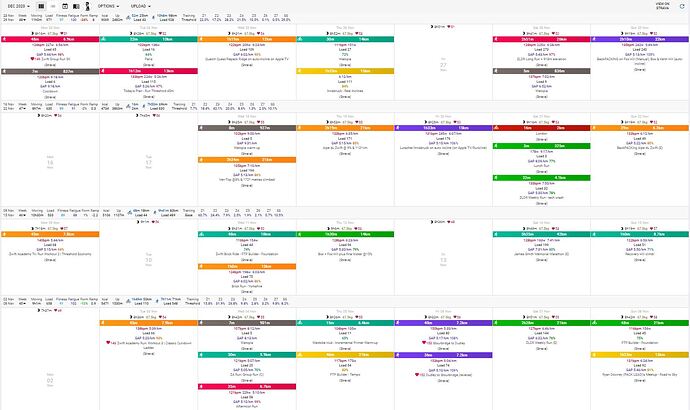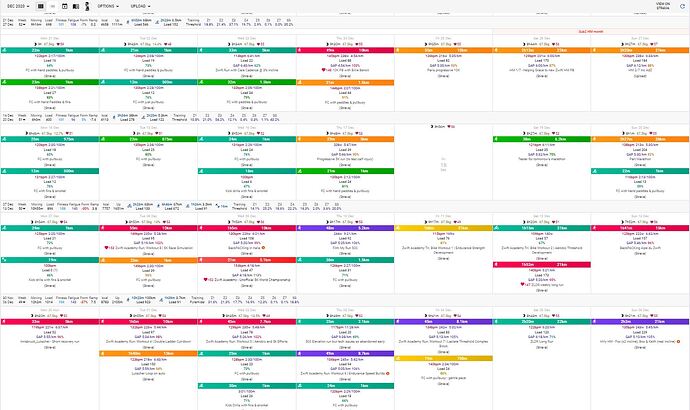Finally I’ll move on to high volume of low intensity that you mention. Here are my weekly hours of cycling for the past 4 weeks. These aren’t out of intervals.icu as I can’t see a way of showing them. But I do track them elsewhere.
Week ending 15th May
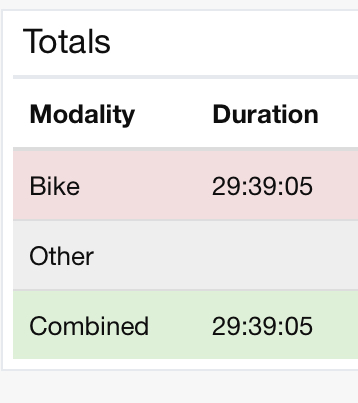
I ride ultra endurance events and had a 24 hour event at the weekend. I cut my training back to 5 hours in the week leading up to the event.
Week ending 22nd May
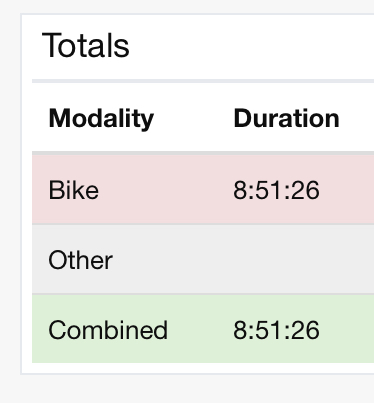
This is the week after where I keep the hours lower than my normal amount to recover from the fatigue of the previous week. I rest first, then do a recovery ride of an hour , next day a slightly longer endurance ride, not reintroducing higher intensities till back end of the week.
Week ending 29th May
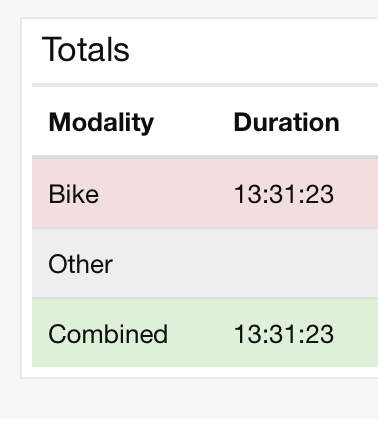
I have now shed the fatigue from the week ending 15th May. I increase my weekly hours back towards normal levels.
Week ending 5th June
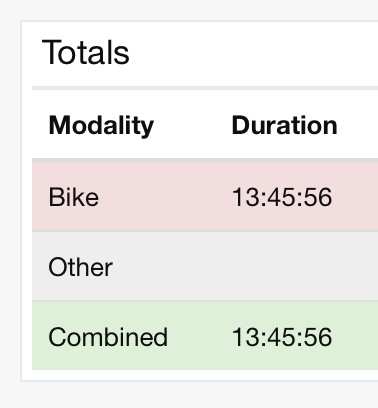
I have progressed the duration of my training but it is only 15 mins longer than the previous week.
Week ending 12th June
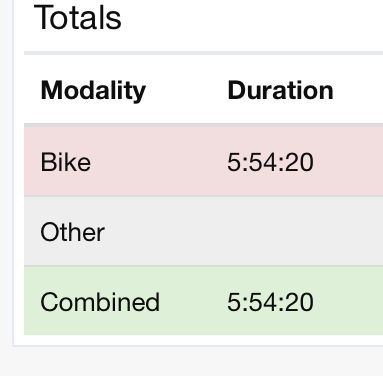
At the end of the current week I have another 24hr event. Thus my planned training has been cut right back to enable me to shed fatigue ahead of it. I’ve significantly dropped volume but I’ll maintain tge intensity of my high intensity sessions.
After my 24hr events I have fatigue like you wouldn’t believe. I listen to that fatigue no matter what the numbers might say. I initially rest up then do recovery, endurance early and leave intensity till back end of the following week. Thus you see that it’s possible to manage high volumes of training but only if the majority is in Z1/Z2. Plus you have to have a deload week after a particularly heavy week. May and June I have these 24 hour cycle events and thus I arrange my deload around them. But in months where I don’t have my long events I still plan in the easier week every 4 weeks.
Something I do for every session is write notes on how I felt, how the legs were, how the heart rate response was, how RPE compares to heart rate. A warning sign for me for instance is if my notes aren’t positive, my motivation is dipping, my heart rate response was sluggish, I could not raise my heart rate when trying to work harder, or my RPE felt significantly higher than the heart rate would indicate. It’s a sure sign I’ve built sufficient fatigue that I should back off, regardless of what my plan might be or some numbers say.
Never be afraid to cancel or delay a workout session or have a rest or recovery day if you don’t feel right or you have consecutive notes indicating things aren’t going as well as you’d hoped. I’d say there are two types of fatigue, the first you have after a hard week or hard or long workout / ride, a bit of rest or sleep and food and drink sheds that fatigue, the latter type builds gradually, and sits in the background, it’s like a malaise that inhabits your psyche, your bones after a while, it affects your motivations and mood, and a little rest , food, sleep doesn’t seem to shed it. If you have the latter fatigue I’d say it’s a sign of overtraining and you need to rest / recover for as long as it takes.
I’d rather be slightly undertrained but fresh and keen, than overtrained, fatigued, moody and demotivated. I also know which one is better for my long term health and fitness.
 In fact, your posts, especially this last one, show tremendous insight.
In fact, your posts, especially this last one, show tremendous insight.